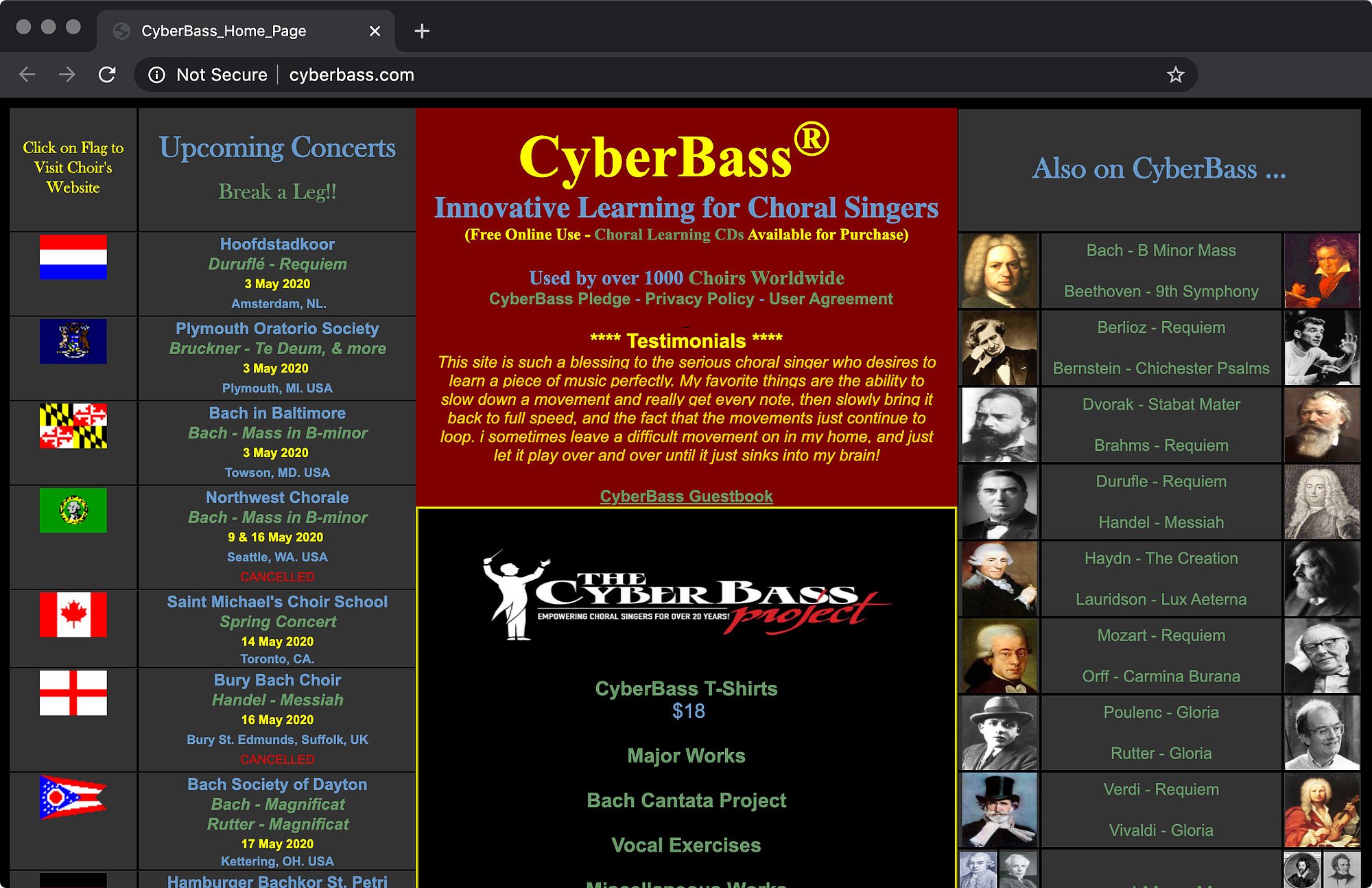In Conversation with Stacy Horn
Nika Simovich Fisher From my understanding, you created Echo from a desire to build a social community of people in New York. At the time, why did a telnet based platform seem like the right place for that, rather than an IRL location? What was the appeal of doing it online?
Stacy Horn I’d already been participating regularly in an online community called The Well, based in California, so I was already aware of the advantages of online communication. Like meeting people you wouldn’t necessarily meet otherwise. Even if I limited myself to my small neighborhood in Manhattan, I would never be able to meet everyone. Or easily find the people who share my interests. Online, I can have ongoing conversations with these people regardless of where they are, or when they’re engaging in the conversation. I can post something before I go to bed and wake up the next day to see who responded.
And this kind of communication was brand-freaking-new. It was so exciting. It was a whole new world to play in. Hard to communicate how thrilling that time was to people who have always had it. It felt like one day I only had access to people living nearby, and the next day I could talk to anyone in the world.

NSF There’s something seemingly ritualistic about how you connect to Echo. You do it through telnet and use the command line with custom calls. Did you feel like there was a stylistic connection between the concept and the way the platform was built and how you interact with it? I’m also interested in why you chose to maintain this experience of logging in to Echo. As a designer, accessibility is a common topic of discussion. The way you log in to Echo is secret, exclusive and has a learning curve to it. How does that impact the community?
SH When I created Echo in 1989 I chose what I thought was the best software for ongoing conversations at the time. It’s called Caucus and I’ve kept it for over thirty years because I could never afford to pay someone to write a more intuitive, graphic interface to sit on top of it. The reason that was important was we needed to be able to access and continue the existing conversations that I didn’t want to lose.
So this wasn’t a choice per se. I kept hoping a solution I could afford would magically appear but it did not! That said, I do not often see conversations anywhere else that reach the depth or the humor that we had and have on Echo, except on The WELL, where they continued to grow, because they were able to come up with the cost of creating a graphic interface! We continue, but we get smaller and smaller every year.
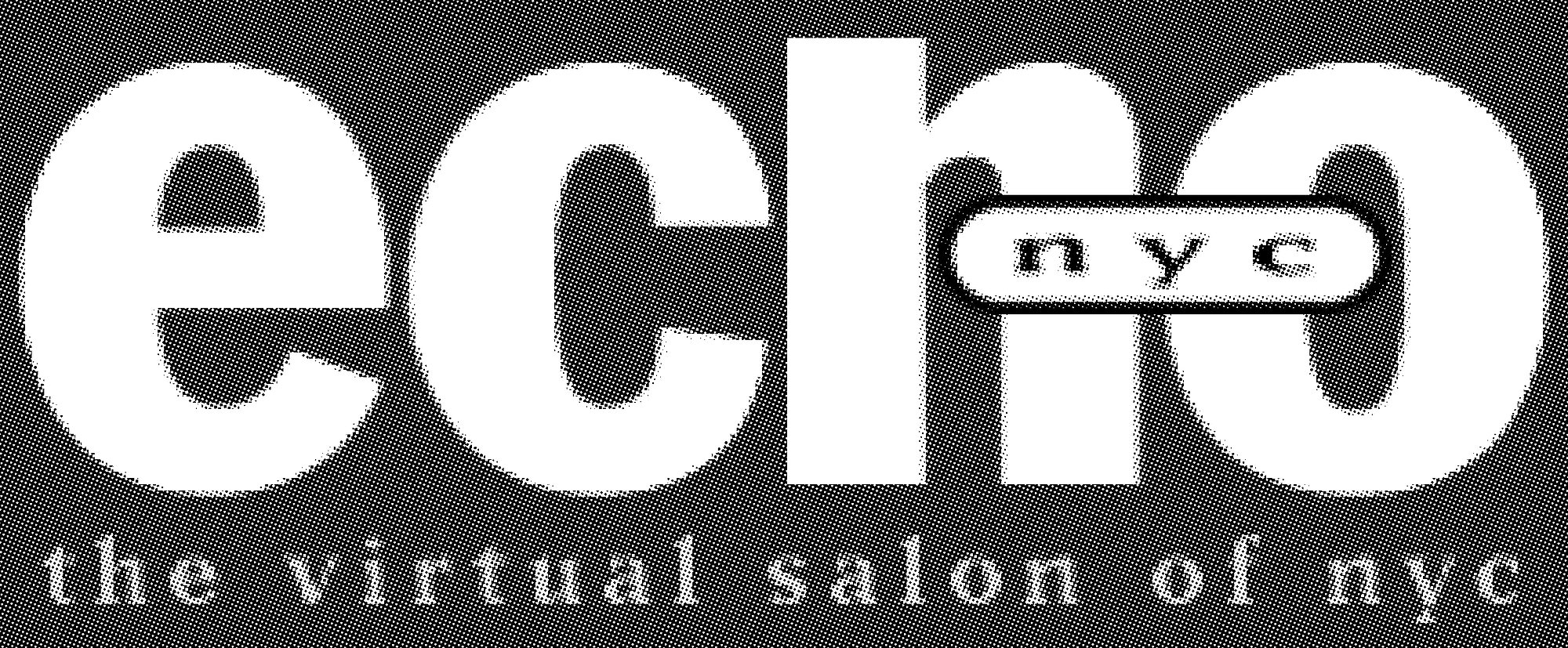
NSF In your book Cyberville, you describe that every online community develops its own flair/personality because of the people who frequent it. How much of that do you think is because of a sense or curation or moderation? Where did you see your role in this throughout Echo’s existence?
SH As I’ve written and said many times, the hosts/moderators had more influence on what Echo became than I did. I wanted more women and artists of all kinds and I did everything I could think of to attract them. And I was pretty successful at bringing an eclectic group of people to Echo. But it was because of the hosts, and their personalities, and their skills at hosting, that a certain percentage of the people I got to try Echo stayed. Of course those people who liked what they saw here and stayed had the greatest affect of all. They made the place.
You could say my best skill was as a host-chooser.
NSF This sense of moderation is something all online communities have to think about. I’m currently part of a slack channel called 100s Under 100 which has an incredible evolving code of conduct on a google doc that all members have access to. In 100s Under 100, there are several admins who watch over the chat and anyone can nominate people to join the group. Was there any kind of legislation like this with Echo? How did it evolve through its existence, and did any of these changes impact the vibe of the community?
SH When I started Echo I was in over my head. I mean way, way, way over my head. All the problems that plague society were recreated online and I had no special training to deal with them. Although I hated the idea of rules, I was born and raised in a time when we were fighting against rules, I got to oversee the virtual birth of a new society, and I very quickly saw how a rule or two are sometimes needed.
One of the most important ones I borrowed from The WELL. Attack the idea and not the person.

The second one was about harassment. If someone tells you to leave them alone, you must.
I said repeatedly in my book that if you put any group of people together, eventually there will be conflicts. As mentioned in Cyberville,
Oh and you didn’t have to be nominated to join Echo. For the most part, people naturally selected themselves out. Either they liked the people and the conversations they found or they didn’t and they would leave.
NSF Legislation and regulations online are an interesting topic with Twitter’s recent flagging of Donald Trump’s tweets. Twitter is an enormous social network compared to the networks of the earlier iterations of the net. If Donald Trump was an Echoid and posting that type of material on your platform, would you have responded in a similar or different way? Do you think there are different standards for communities, depending on scope? (i.e. A website for 5 close friends vs a social network with thousands of users)?
SH Donald Trump would have been kicked off Echo fairly quickly. We don’t allow racist or sexist remarks. Period. The size of community is an issue, yes, and sheer numbers can dilute the impact of hateful remarks. But coming from someone in such a position of power on such a large service, it amplifies them.
I would say that what Twitter is doing is a good start. I think they need to do more, but having run an online community I know that is easier said than done. Dealing with all the horrible things people say and do, on the scale of a service like Twitter, is a massive challenge. And an awesome responsibility. If I worked there I’d probably break down and sob on a daily basis. I always did my best to be fair, and just, and to limit speech as little as possible. Again, this is easier said than done. Kicking off someone like Trump, and other trolls, is a relatively simple decision to make. But even good people can behave terribly, and you don’t want to punish people all the time for just being human. So what do you do?

NSF This is one of my favorite quotes in Cyberville:
This idea of gendered places is interesting and goes back to the previous questions of accessibility and curation. What you said resonates with me because I think environments should be safe and welcome for as many people as possible, but blatantly saying that works against it because it’s never going to be organic and natural. It’s impossible to make something “for everyone” so you have to set some guidelines to make a pleasant environment for a specific community. You describe how you made Echo free for the entire year of 1990 and made sure women were included as the admins. What inspired you to react this way? Do you think current online communities could do more to bridge gaps in members, whether it’s gender or race?
SH We’re talking about the 1980’s. The online world was dominated by men. I was working in telecommunications at the time and that field was dominated by men. It was absolutely natural that when I started planning a new virtual community one of the first things I thought I could do better, was make sure that unlike every other place online, Echo wasn’t dominated by men. I was (am) a 1970s era feminist. Which actually meant that I had a lot to learn about the nature of gender when we welcomed our first transgendered members of Echo. I made mistakes. When one of Echo’s early transgendered members asked to join a women-only conference I said she could join after she’d been on Echo for a while. My fear was men would say they were transgender in order to see what the women were saying. But thankfully the community on Echo very quickly pointed out the problems in my thinking, and the unfairness, and I took back my decision, and transgender women were allowed to immediately join the women’s conference.
The one area where I failed completely was trying to make Echo less white. Only a small percentage of the people of color I got to try Echo stayed. I should have done what I did to make sure women felt at home on Echo: I put them in charge. I didn’t just make sure women were included as admins on Echo, for instance, but half the hosts of Echo were women, and the person who managed all the hosts was a woman. If I were doing Echo today I would also make sure that half the hosts were people of color. I wish that had occurred to me back then.
We had a private conference on Echo for the hosts, where, among other things, we talked about how to make Echo better. If that conference had been more diverse, Echo would have been more diverse.

NSF I’m inspired by the longevity of Echo. Did the members ever consider migrating somewhere else? On that note, I think networks typically ebb and flow. Sometimes I come back to something I was interested in a long time ago with renewed interest. Did Echo experience something like this with the userbase?
SH Almost all the members of Echo have already migrated elsewhere. Mostly to Facebook, where they still maintain friendships and an Echo community. There are a small number of us who still hang out on Echo. We’re all growing old together. As I said on my website, “We’re like the dive bar that has hung in there even though the neighborhood all around it has changed.”
For the most part, we don’t delete anything on Echo so we have conversations going back to 1989. As an amateur historian, I cherish what we have saved. I know future historians will. We still have have conversations from the first World Trade Center bombing in 1993, and the second one in 2001. We have our reactions to Anita Hill being questioned during the Clarence Thomas confirmation hearings in 1991. The list goes on. And yes, the people on Echo do look back from time to time. Imagine being able to go back to see what you said thirty or twenty years ago about some event, or issue, or tv show or piece of music or art? So many of your thoughts and feelings for the past 30 years are there

NSF There’s something about language that leaves room for the imagination. For example, when you read a book, you develop a keen understanding of the characters and an opinion on what they would be like in person. I feel like talking to people online is the same way, there’s a sense of interest and mystery… why did they choose this word over that word and the ability to choose to respond or not gives you more control over the conversation. In recent times, people curate their online appearances in a way to tell a particular story or convey an image about themselves. Do you feel like on Echo or on the text based internet, were people still able to curate themselves through words?
SH I don’t think people can help revealing themselves. For most people, it’s hard to keep up an act. Given enough time, you will eventually learn who a person really is. Mostly. So I think people did try to curate how they appeared to others, but we got to see so many sides of them through all the different conversations we were were having that it became harder for anyone to control the picture they were presenting.
NSF I love the way that on Echo, a direct message was called a “yo.” There’s something so casual and custom about that. What was the design process for this like?





SH Honestly, I didn’t have a design process. Not a conscious one anyway. For instance: The YO command was based on a Unix command called “send.” You’d type send and the username of the person you wanted to talk to. My username is horn so you would type “send horn.” That was kinda dry, and computer science-y. I wanted to come up with a less boring name for the command. Something more fun. A friend on Echo, who was actually a former boss, suggested YO. Instead of “send horn” you’d type “YO horn.” That sounded more fun and very New York to me so that’s what I went with.
A reminder, we were designing in a text-only environment. This was before point and click. All my decisions were based on what would be more fun, and making each command the least clunky possible. What are the fewest characters we can use to execute this command?

NSF In your book, Cyberville, you talk about how in some of the chatrooms, people mistook you for a man. You also included an Echo Poll which asked others if you’re able to tell the gender of the person through text. This made me think about how now, on most online platforms your name is integrated with a profile and image, providing more context on the person’s identity. How do you think this affects how we understand personality online?
SH We don’t have chat rooms. Sometimes we used chat for a specific event, but it was rarely used. All our conversations take place in non-realtime. But in answer to your question, having your name and image associated with your profile might lead to fewer assumptions about who you are speaking to, and fewer mistakes. I also think that language overall, and conversational style, has become much more gender neutral. People mistook me for a man because I communicated in a way that was associated with men at the time. I don’t think that would happen as much today.
But it would make an interesting experiment. Throw a group of men and women into a social network with no way of determining gender and see if any assumptions are made, and if they are correct.
NSF I remember reading that emoticons were not used on Echo. How do you feel about the usage of emojis in conversation today? How do they affect “personal style” through language?
SH Emojis are fine as a shortcut, and when you don’t have the time. But they are used all the time now, instead of expressing feelings, which can be much more nuanced. To address this more and more emojis are designed. Again, fine. But feelings are still deeper, richer, and more nuanced than emojis can express. Also, if you can just quickly insert an emoji, you may not think or examine just what your thoughts and feelings really are. It’s like when you’re given an assignment to write about something. When you begin you may have a general sense of how much you know about something, and how you feel about it, but in the very act of writing you see exactly how much or little you know, and more about what you really feel.
I lament that people are writing less and less. But that genie is never going back in that bottle. Sometimes there are upsides to things that may initially appear like a negative. Good things might come about because of emojis. You could probably tell me what they are!

NSF In today’s internet, more people use their full names as their main moniker. I remember growing up, people were so cautious about revealing too much about themselves online. Do you feel like this has changed? How do you think using your real name/photo/background impacts what you might publish online or share in an online community?
SH Well, even though people had screen names on Echo we never allowed anonymity, (with only a couple exceptions, if someone was ridiculously famous they could use a screen name). This was important to me because I wanted people to take responsibility for their words. If you were going to say something hateful, you couldn’t hide behind a fake name. If you used a screen name, people could always look up your real name.
In the beginning, there was a tremendous pushback on Echo about using real names. People fought me on that. They said they didn’t feel safe. I said but if anyone goes after you on Echo, everyone knows that person’s real name too.
If people are using their real names more I think that is a great development.
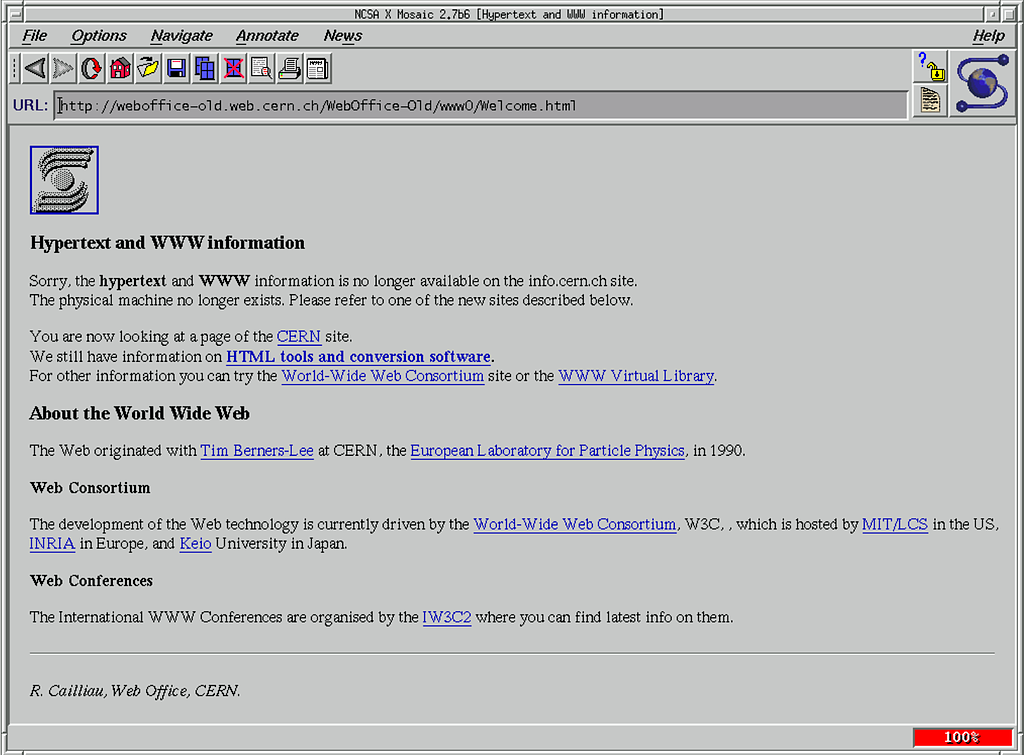
NSF I was a teen when Myspace and Facebook were new and that was the first time I noticed people actively curating versions of themselves on a public display. Part of this evolution was because the internet was starting to become more visual – you could upload a few photos to go along with your account and curate your “top 8” friends. In my memory, this was when the internet became more mainstream and suddenly everyone I knew was online. Do you have a memory of this happening? How did that impact Echo and what do you think inspired Echo to persevere?
SH I’ll never forget when the first graphic interface for the internet was developed (Mosaic). Everyone who saw it got excited and knew that it would change everything. It was the best possible development. The text based interfaces, like the one Echo uses, are just too hard. A graphic interface meant more people could get online. And, you can interact and create in more and more ways. All the other apps and services that came after, where people can make and insert photos, videos, music, and so on. It’s endless really, all the things that came once the internet became more visual. I love it.
Echo has been left in the dust, but that’s okay. I wish I could have afforded to keep up, but I’m mostly thrilled at how things have evolved. I’m only less thrilled because now that practically everyone is online I have a better idea of how many racists are out there.

NSF I’m curious about the speed of online interactions. Little Chefs, my own version of an online environment, is both a utility and a community, but it’s not really meant to be social. I intended it to be a slower website – you’re not constantly cooking or looking for a recipe, but when you are, it’s there for you. Echo is quite different as it’s primary focus is to chat with others, and it seemed like having conversations in real time was part of the excitement (like when everyone was watching the OJ Simpson car chase). Do you think people’s appetite for constant connection has evolved? What do you think about decentralized platforms like Scuttlebutt?
SH We didn’t have conversations in realtime, although people sometimes were posting so quickly it felt like realtime. Just like how people posting all time time on Facebook feels like realtime. But in reality, I might post something tonight and you might read it a few minutes later, or the next day. I know what you mean though. I just think we still have this in a lot of places and it feels great when it happens. I remember when Obama got elected I couldn’t celebrate enough. I went to every online platform I could to express joy and to read other people’s expressions of joy. (I forget why I didn’t go outside!) And I kept going back, circling around, to celebrate. I didn’t want to go to bed.
I haven’t used Scuttlebutt so I can’t comment on it. (I just googled it and it sounds like an app mirroring the structure of the internet.) I think people’s appetite for connection will always be growing and evolving and novel ways to communicate that are either fun, useful, or both will always be jumped on.
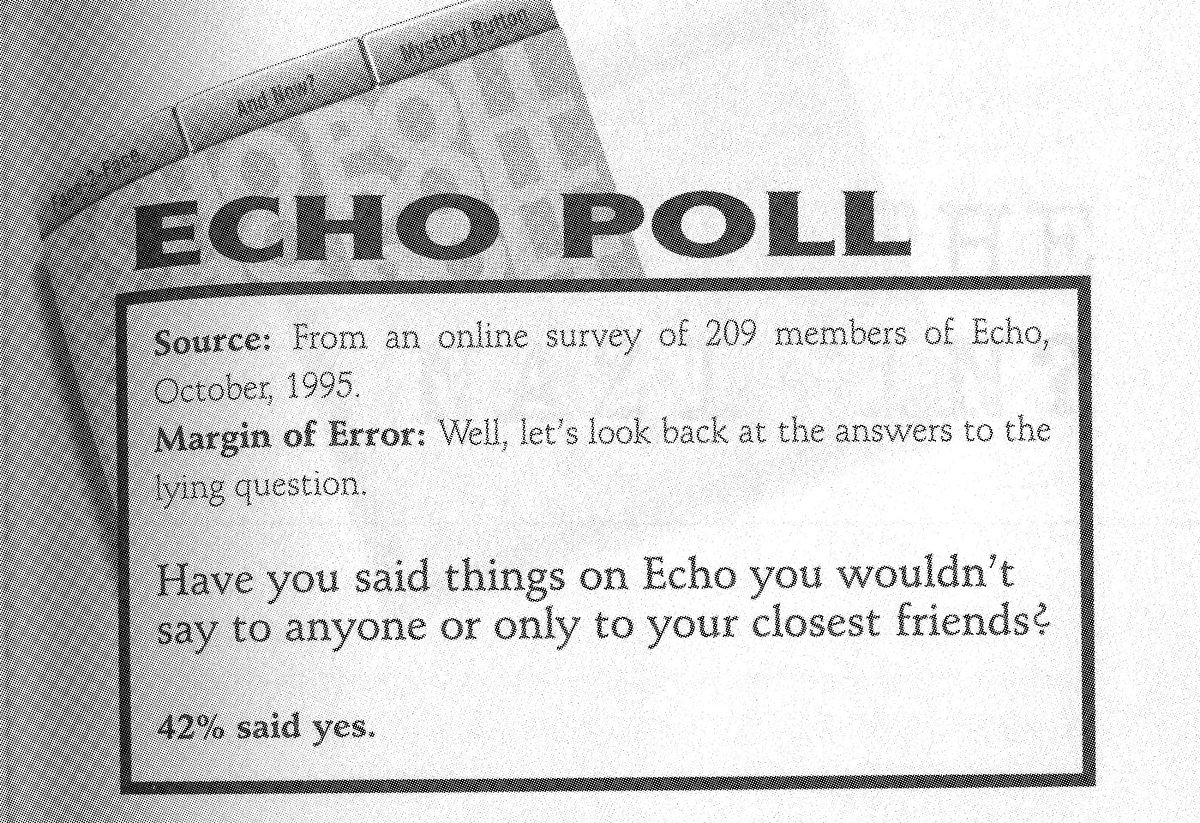
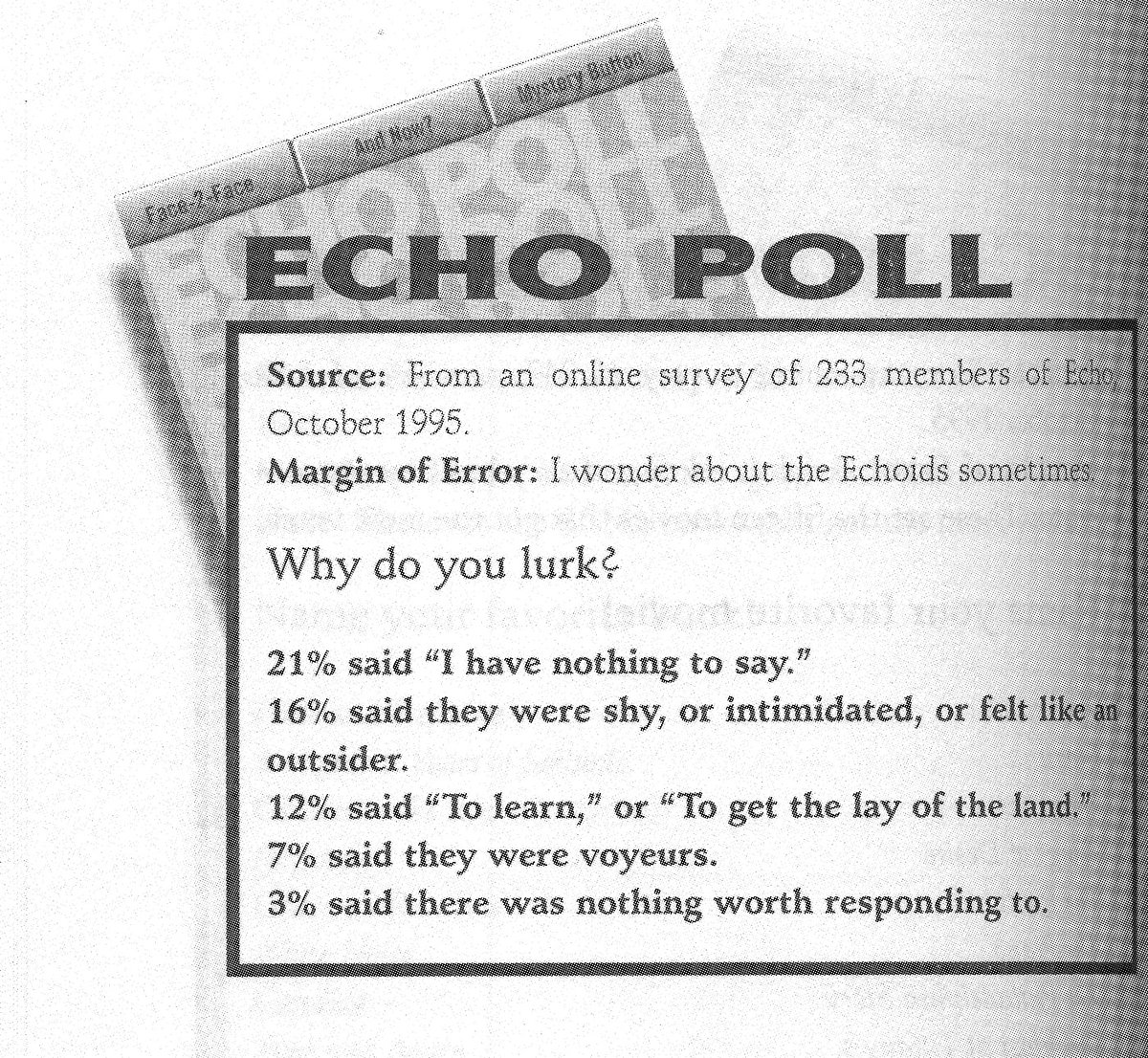
NSF It seems like polls and getting feedback was an important part of running Echo. Were there other interactions that made it feel like an evolving project?
SH Echo was an evolving project. We were flying by the seat of our pants so we were in a constant state of adaption. There were areas on Echo where users could provide feedback, and tell us what they hated about Echo, or liked, what should be changed, added, and it was an extremely active conference. There was also an area for hosts. We also had a very active face-to-face community and we were always getting together in person as well. There were two reasons for that. Very early on I discovered that people who met each other in person were more likely to stick around, and it was also easier to solve conflicts in person. So I was always trying to come up with ideas of fun things to do on Echo that would also build the community. I wanted to get more filmmakers on Echo, so we established an independent film festival. To get more artists I got the Whitney Museum to come online and moderate a conference.
At every online gathering people had the opportunity to come up to me and give me their opinions and suggestions and they always availed themselves of these opportunities.
NSF For my last question, I’d love for you to create a recipe (set of instructions) for something that brings you comfort. It could be a food recipe or it could be instructions for an activity or experience (example) Please include a link.


